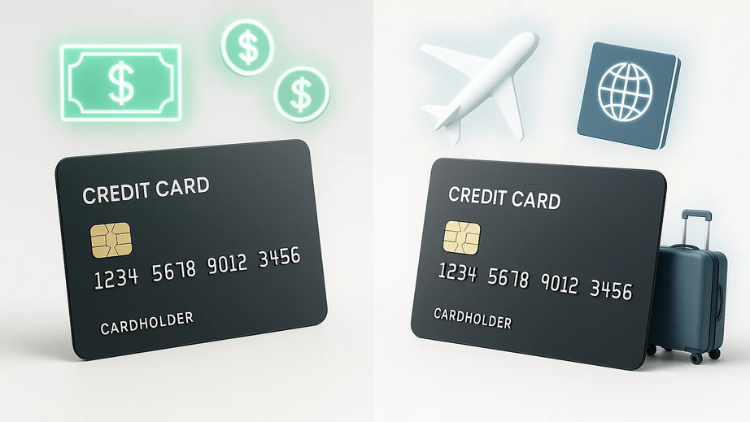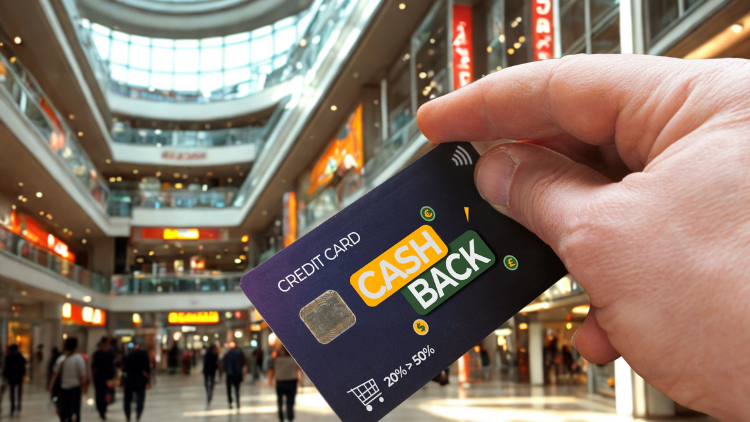Choosing a business credit card is a strategic decision.
The rewards you earn are a real, tangible return on your everyday business expenses, and the right strategy can add hundreds, or even thousands, of dollars back to your bottom line each year.

The most fundamental choice you’ll make is between two powerful options: straightforward cash back or high-value travel points.
This isn’t just a matter of personal preference; it’s a business decision that should align with your company’s spending, your cash flow needs, and your personal goals.
So, which is the smartest choice for you? Let’s break down the pros, cons, and ideal user for each strategy to help you decide.
The Case for Cash Back: Simple, Flexible, and Predictable
How it Works: This is the most straightforward rewards system. For every dollar you spend, the bank gives you a direct percentage back as cash. A dollar in cash back is always worth a dollar. Simple.
The Pros:
- Ultimate Flexibility: Cash is king. You can receive your rewards as a statement credit to lower your bill, get a direct deposit into your business bank account, or even request a check. That money can be used for anything—reinvesting in inventory, covering payroll, or paying your taxes.
- Simplicity: There are no award charts, blackout dates, or transfer partners to learn. You earn a clear percentage, and you know exactly what it’s worth.
- Predictable Value: The value of your rewards never changes. 2% cash back is always 2 cents on the dollar.

The Cons:
The value of cash back is capped. You will rarely, if ever, get more than 2 cents of value for every dollar you spend.
The Ideal User Profile: Cash back is the smartest choice for business owners who:
- Value simplicity and don’t have time to manage a complex rewards program.
- Need to maximize cash flow and prefer to reinvest rewards directly into the business.
- Have unpredictable travel schedules or are loyal to budget airlines, making traditional loyalty programs less useful.

The Case for Travel Points: Aspirational Value and Luxury Perks
How it Works: With these cards, you earn points in a bank’s flexible rewards program (like Chase Ultimate Rewards® or American Express Membership Rewards®). The value of these points is variable; it all depends on how you redeem them.
The Pros:
- Huge Potential Value: This is the main draw. By transferring your points to airline and hotel partners, you can book travel that would have cost far more if you paid with cash. It’s not uncommon to get 2, 3, or even 5+ cents per point in value, especially for business or first-class flights.
- Access to Luxury Travel: Points are the gateway to aspirational travel. That lie-flat seat on an international flight or that luxury suite at a Park Hyatt become much more attainable.
- Valuable Perks: Travel-focused business cards often come with tangible benefits like airport lounge access, travel insurance protections, and credits for services like Global Entry.
The Cons:
It’s complex. Maximizing value requires research, flexibility with your travel dates, and a willingness to learn the ins and outs of airline and hotel loyalty programs. The value of points can also be devalued by the banks at any time.
The Ideal User Profile: Travel points are the smartest choice for business owners who:
- Travel regularly for business or pleasure.
- Have flexibility in their travel dates and destinations to find the best award availability.
- Enjoy the “game” of finding great deals and maximizing their rewards.
Let’s Talk Valuation: A Quick Example
Imagine your business spends $50,000 in a year.
- With a 2% Cash Back Card: Your reward is simple and guaranteed: $50,000 x 2% = $1,000 cash back.
- With a Travel Card earning 1.5x points per dollar: You would earn 75,000 points.
- Poor Redemption: If you redeemed those points for cash back at 1 cent each, they’d be worth only $750.
- Excellent Redemption: If you transferred those 75,000 points to an airline and booked a business class flight that would have cost $2,250, your points were worth 3 cents each.
As you can see, points are only as valuable as the redemption you find.

The Verdict: A Quick Quiz to Find Your Strategy
Answer these three simple questions to find your answer.
- Do you travel for business or pleasure at least 2-3 times per year?
If No, your clear winner is Cash Back. - Are your travel dates and destinations generally flexible?
If No, you will struggle to find the best award deals. Lean towards Cash Back. - Does the idea of researching airline alliances and award charts sound exciting to you?
If you just groaned, the clear winner is Cash Back.
If you answered a confident Yes to all three questions, you are a prime candidate for a travel points strategy. Otherwise, a simple, powerful cash back card is the smarter, no-nonsense choice for your business.
The best rewards strategy isn’t the one with the highest theoretical value; it’s the one you will actually use and benefit from. Choose the path that provides real, tangible value to your business, not just a flashy promise.
Frequently Asked Questions (FAQ)
Can I have both a cash back and a travel points card?
Yes, and this is a great “advanced” strategy. Many savvy owners use a simple cash-back card for everyday business spending and a travel card specifically for categories like dining and travel to maximize both systems.
What are “transferable points”?
These are the most valuable type of reward points. They are points earned in a bank’s program (like those from Chase, Amex, Capital One, or Citi) that can be transferred out to a variety of external airline and hotel loyalty programs. This flexibility is what gives them such high potential value. For more on how these programs work, you can visit consumer education sites like the Consumer Financial Protection Bureau (CFPB).
Is a co-branded airline or hotel card a good idea?
They can be, but they are far less flexible than bank points. A co-branded card (like a Delta or Marriott card) locks you into one specific loyalty program. They are best for people with unshakable loyalty to a single brand who can take full advantage of the specific perks offered, like free checked bags or elite status.
WalletAware shares education, not individualized financial advice. Always confirm current terms on the issuer’s site before applying.